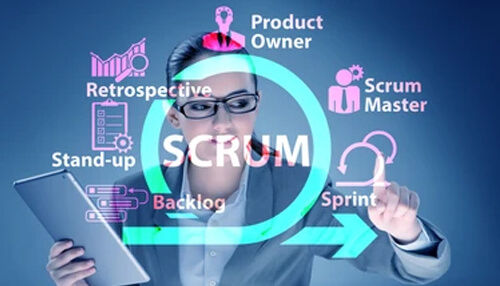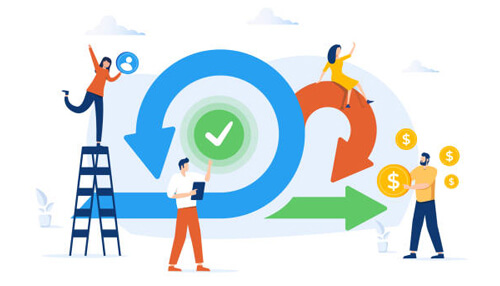Introduction
With the aid of the agile methodology, teams can respond quickly and unexpectedly to project feedback. It offers chances to evaluate the course of a project when it is still in the planning stages. Iterations or sprints are periodic meetings when teams evaluate the project. A very powerful technique, business agility aids in creating the ideal product. Because it enables them to evaluate and enhance their product as it develops, the management process is particularly advantageous to software firms. Business agility makes it possible for businesses to create a highly valuable product in order to remain competitive in the market.
In this article, we are going to talk about the 08 methods you need to know about what is agile methodology.
1. Kanban
The phrase “Kanban,” which is derived from the Japanese language, is translated as “visual board or placards. “the Kanban concept has gradually made its way to rapid application development teams. This approach develops and manages projects using visual methods.
This method requires continuous communication and transparency to keep the team ready for growth stages and maintain a steady workflow.
2. Scrum
The agile scrum method, with its iterative production cycles, is a prominent example of agile methodology. Scrum divides the development processes into units known as “sprints,” much like Kanban. By maximizing and dedicating time for each sprint’s development, just one sprint is managed at a time.
3. Extreme Programming (XP)
The Extreme Programming (XP) methodology places a strong emphasis on collaboration, dialogue, and feedback. It emphasizes ongoing improvement and client happiness. This approach utilizes sprints, or brief development cycles, just like scrum. Business leaders and teams create this process in order to produce a highly effective and productive atmosphere.
4. Crystal
Crystal is a collection of smaller agile project approaches that include Crystal Yellow, Crystal Clear, Crystal Red, Crystal Orange, and more. It was first introduced by Mr. Alistair Cockburn, including some of the most significant individuals in the creation of the Agile manifesto for software development. Each has a unique structure that distinguishes it from the others based on variables including system criticality, team structure, and business priorities.
5. Method for the Development of Dynamic Systems (DSDM)
The Dynamic Systems Development Method (DSDM) was created to answer the demand for a uniform industry charter for the quick delivery of software. The software development process can be planned, carried out, managed, and scaled using the comprehensive structure provided by DSDM.
6. Development Driven by Features (FDD)
This progressive, iterative, and agile approach includes a number of industry-recognized best practices. Its main objective is to reliably and quickly develop functional software. Creating feature lists, strategizing by feature, drawing by feature, and lastly constructing by the feature are some of the steps in the lifecycle that are included.
7. Agile Scaled Framework (SAFe)
The Scaled Agile Framework is a set of organizational and operational patterns for applying agile practices at an enterprise scale (SAFe). By using SAFe, business leaders can benefit from a framework that is comparatively lightweight while preserving the centralized decision-making necessary at the enterprise level for software development efficiency.
8. Lean Software Development
The software development process is streamlined and optimized using the agile framework known as Lean Software Development (LSD). It is being developed with the help of a pro-lean counterculture within the agile community and is based on the Toyota Production System.
Conclusion
Among the several varieties of agile methodology, selecting the best one requires a flexible strategy. When picking a framework for a business, one must constantly take into account the benefits and drawbacks of the agile methodology in order to attract talent and deliver exceptional user experience in this fiercely competitive industry.




